帰国後、英語を忘れてしまう帰国子女 2025 Forgetting English After Coming Back to Japan
帰国子女が英語を忘れる理由と対策
帰国子女はなぜ英語を忘れるのか?
- 英語を定期的に使わないと、2年以内に英語力が低下する。
- 日本語環境に適応するため、英語を話さなくなる。
- 脳が英語を「不要な情報」として認識し、忘れてしまう。
- 英語を話す友達がいないと、英語が嫌いになることも。
- 親の努力だけでは、英語力を維持するのは難しい。
- 同年代は1言語だけなのに「自分は2言語を勉強しなければならない」と感じ、不公平感や負担感を抱きやすい。
英語を忘れないための対策
- 英語を話す同年代の友達を作る – 帰国子女向けの英会話スクールやアクティビティに参加する。
- 英語をアウトプットする機会を増やす – 英語で話す環境を作り、読書やライティングの習慣をつける。
- 英語を楽しむ – Netflix、YouTube、映画、本などを英語で楽しむ。
- 英語オンリーの環境を作る – 家庭で英語のみで話す時間を作ったり、英語学習イベントに参加する。
- 英語学習の目標を持つ – 英検やTOEFLなどの試験を目標にすることでモチベーションを維持する。
成功事例
6歳で帰国したある生徒は、英語を話す友達に刺激を受けながら、意欲的に学び続けました。その結果、高校卒業後にはカリフォルニア大学バークレー校へ進学。適切なサポートと環境があれば、英語力を維持し続けることができます。
📌 英語力を維持するには、適切な環境・仲間・サポートが必要です!
Lexisの講師ジャレッドは、16年間にわたり日本人一般生と帰国子女の両方に英語を教えてきました。その経験から、帰国子女には特別なアプローチが必要であることを理解しています。ジャレッド先生はハーバード大学でスクールマネジメントとリーダーシップの認定証を取得しています。Lexisは約30年間、帰国子女に特化した英語教育を提供しています。
For 16 years, Jared has been teaching English to Japanese and returnee students, understanding that returnee students need a special approach. He also holds a Certificate in School Management and Leadership from Harvard University. For nearly 30 years, Lexis has specialized in providing English education tailored to returnee students.
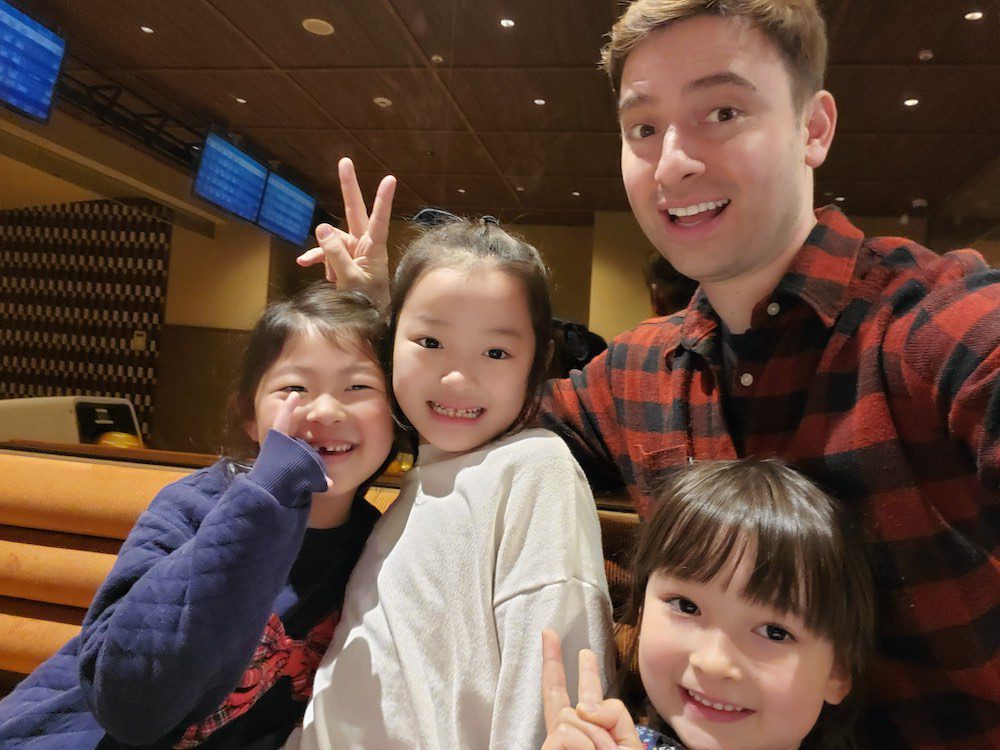
レクシスのサマーデイキャンプで帰国子女やバイリンガルの生徒たちと楽しい時間を過ごした様子
帰国後、英語を忘れる
帰国後に英語を忘れてしまうことについて
帰国子女の親御さんの多くは、日本に戻ってきたお子さんが、驚くほど早く英語を忘れてしまうことに驚かれます。実際、日本のどの地域を歩いても、英語がほとんど使われていないことに気づくでしょう。子どもは適応能力が高く、新しい環境にすぐに順応する力を持っています。これは子どもならではの素晴らしい能力ですが、その一方で、忘れるのも早いのです。人間の脳は、関連性のない情報を自然と忘れるようにできています。時には、役に立たないことを覚えていることもありますが、基本的に「使わない情報」は記憶に残りません。子どもたちは確かに吸収が早いのですが、その知識も使わなければ、やがて忘れてしまうのです。
ワンポイント情報:
- 私たちの経験から、定期的に英語を使わないと、帰国した生徒は2年以内に英語力を失ってしまいます。
- 帰国した生徒は、日本語を話す友達と仲良くなるために英語を使う機会がなく、英語を忘れてしまうリスクが非常に高いです。日本で英語で話せる友達を作ることは、非常に重要です。
- 英語を話す友達がいない生徒は、特に学校の授業が簡単すぎるか、文法に焦点を当てたものばかりで会話中心でない場合、英語を嫌いになり始めます。
- 帰国子女の生徒は、まわりの友達に溶け込もうとして、自分の英語力をあえて隠すことがあります。
- 日本語を話す友達の影響はとても大きく、親が最善の努力しても、子どもの英語力の維持が難しいことがあります。
- 適切なサポートがないと、かつて英語が堪能だった子どもでも、基本的なことを一から学び直さなければならず、同年代の仲間が前に進む中で、大きく後れを取ってしまうことがあります。
- 同年代が1言語だけ学ぶ中で2言語を学ぶのは不公平だと感じたら、その気持ちを認めつつ「2言語を使える自分」という強みに言い換え、海外の友人関係と将来の選択肢を守る力だと伝えましょう。
- 帰国子女が英語を忘れる理由と対策
- 帰国後、英語を忘れる
- Forgetting English after coming back to Japan
- How My Grandmother Lost Her Native Language
- Challenges of Maintaining English for Returnee Students in Japan: The Importance of Language Output
- Effective Strategies for Parents to Maintain Their Children's English Skills: The Power of Peer Influence
- Finding Peers to Maintain Children's English Skills: The Key to Language Retention Through Social Interaction
- Engaging Returnee Students in English: Field Trips and Activities to Maintain Language Skills
- Act Now to Prevent Your Child from Losing English Skills: The Importance of Continuous Language Support
- Success Stories of Returnee Students at Lexis: From Childhood to University Excellence
- To Returnee Students and Families Across Japan
帰国子女でも英語を忘れてしまうことがある
実は、私の祖母にも同じことが起こりました。祖母はフランスで生まれ、生まれてから5歳まではフランス語だけを話して育ちました。6歳のときにアメリカ合衆国に移り住みましたが、母国語がフランス語であったにもかかわらず、アメリカではフランス語を使う機会がまったくありませんでした。周りにフランス語を話す人がいなかったため、祖母は次第にフランス語を完全に忘れてしまい、10代になる頃には全く覚えていなかったのです。
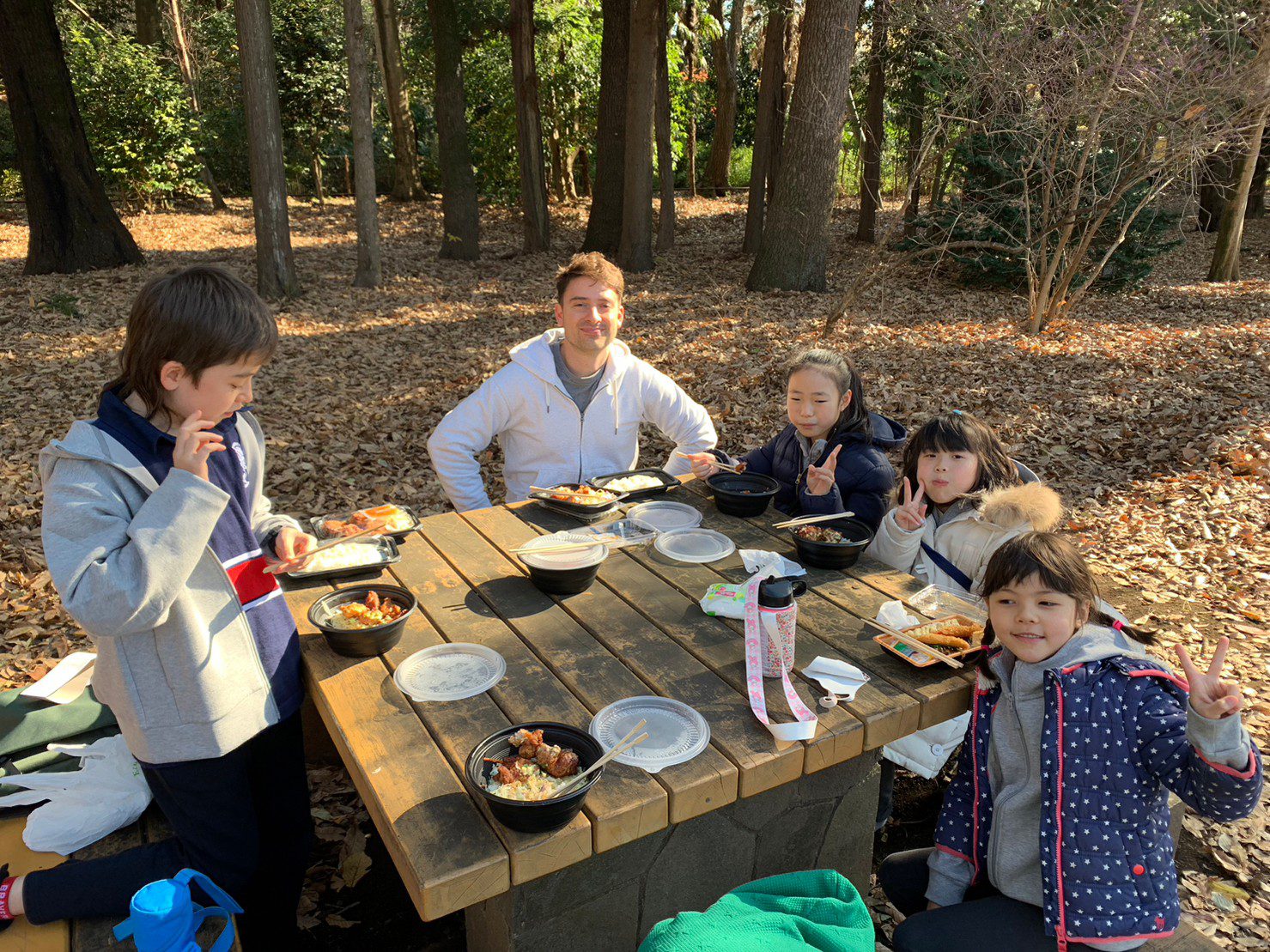
帰国子女が英語を忘れるのを防ぐためにしたいこと
日本に戻る生徒にとって、英語はおそらく第二言語であり、第一言語ではありません。その生徒が自然に英語を維持する可能性は非常に低いです。さらに、祖母の場合、フランス語と英語は同じアルファベットを共有していました。漢字、ひらがな、カタカナが標準的な英語のアルファベットとはいかに異なるかは皆さんご存知の通りです。幸いにも、私たちはより現代的な時代に生きています。YouTube、Amazon、Netflixなどは、言語のインプットを作る機会を提供します。生徒たちは楽しみながら、エンターテインメント感覚で英語を聞くことができます。英語で想像したり、映像を見たり、英語から感情を感じ取ったりすることも可能です。これらは適切に管理された環境で行うと、より効果的です。しかし、アウトプットはどうでしょうか?友達と英語でコミュニケーションを取ることはできますか?自分の状況を説明することはできますか?間違いを訂正しながら励ましてくれる人はいますか?日本に戻ってきた生徒にとって、ここがスタート地点です。
親の役割:子供が日本に帰国後も英語力を維持するためのアクティビティ
親として、私たちにはいくつかの選択肢があります。もし英語が十分に得意なら、家庭で完全に英語に切り替えることもできます。例えば、家ではずっと英語で話したり、英語の質問にだけ答えたり、家族でテレビを見るときは子どもにできるだけ英語の番組を見せたりすることです。これは特に小さな子どもに効果的です。本もとても良い方法で、親が英語の本を読んであげたり、子ども自身が英語の本を読んだりするのは最高の解決策です。でも、子どもたちは何よりも同年代の友達が大好きです。公園で子供と一緒に英語でかくれんぼをしたり、サッカーを教えたり、ダンスを楽しんだりする親御さんもいらっしゃいます。これらは親子の絆を深める素敵な時間です。とはいえ、子どもは周りの友達がしていることを見て、真似をします。どんなに頑張っても、同年代の子どもたちが話す日本語に自然と流れてしまうことに、親は気づくはずです。子どもにとって、同年代の影響力は何にも勝るんです。
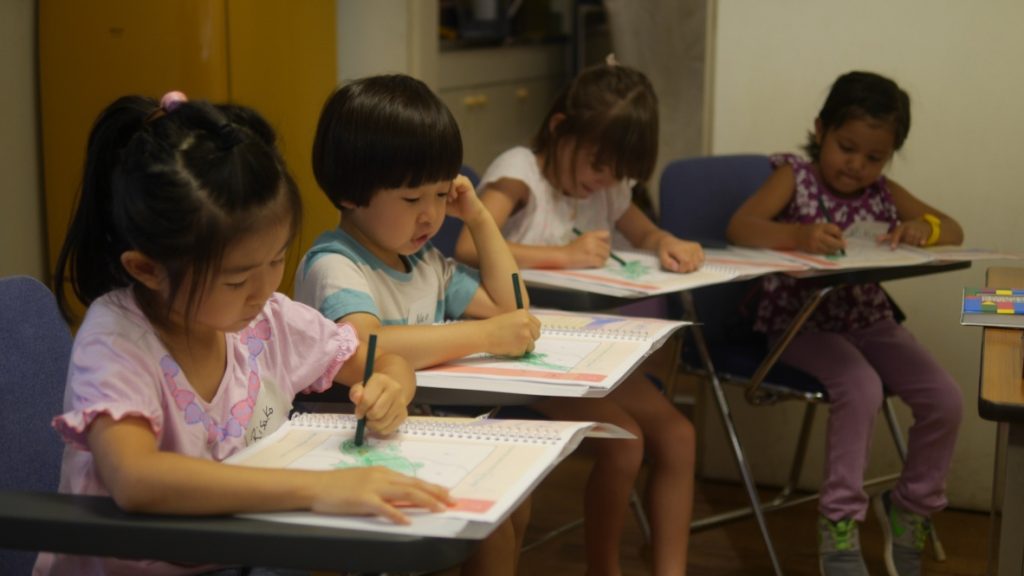
帰国子女英語力キープ:速く英語を忘れる問題への対処法
では、解決策は何でしょうか?まず一つの簡単な方法は、子どもたちに同年代の友達を見つけてあげることです。同じような子どもたちが集まるクラスや活動に参加することで、英語を使うことが「当たり前」になります。英語がただの無関係な情報ではなく、大人だけが使う言葉でもなくなるのです。
同年代の友達や先生、コーチと一緒に、楽しく意味のある関係を英語で築きながら、一緒に練習し、成長し、競い合い、思い出を作っていきます。こうした交流を通じて、子どもたちは英語を続けるための大きな動機を持つようになります。
では、勉強に乗り気でない生徒はどうしたらいいでしょうか?もし海外で英語を学んだのに、教室での勉強にあまり熱心でない場合は、より工夫が必要です。子どもたちは、イベントや体験を通じて学ぶことが多いので、そうした機会を増やすことが大切です。
レクシスでは、そうした生徒のために多くの遠足や体験イベントを用意しています。関東周辺には「英語フレンドリー」な場所がたくさんあります。例えば、新座市のトランポランド、豊洲のチームラボ・プラネッツ、キッザニアの英語ウェンズデープログラムなどです。
さらに、ロッククライミングやボウリング、アート&クラフト、スケートなど、子どもたちが自分たちで楽しい体験を作り出せる場を提供し、日本の中に「英語オンリーゾーン」を作っています。これにより、子どもたちは英語の環境に自然と慣れ、英語力を維持しやすくなるのです。
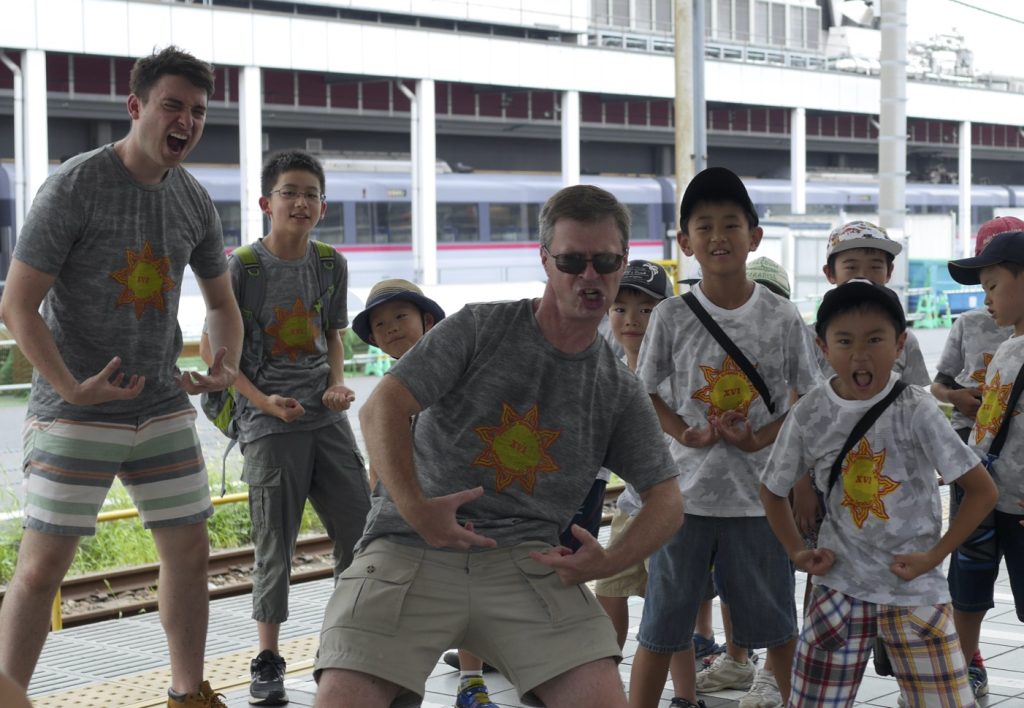
帰国後英語忘れる
もしお子さんの英語力が衰え始めているなら、今こそ行動を起こす時です。まだ流暢に話せているなら、特に注意が必要です。私の15年間の指導経験から言うと、流暢だった小学3年生が、他のことに気を取られ、中学生になる頃にはカタカナ英語のような日本語混じりの英語を話すようになるケースをよく見てきました。こうした生徒たちが小学3年生のときに私たちの学校を離れ、中学1年生で戻ってくると、言語能力の低下が非常に顕著です。北米の小学3年生レベルの英語(英検プレ2程度)からやり直すことになる可能性が高いのですが、逆にレクシスに在籍し続けた生徒たちは英検1級に近いレベルの読解力を身につけています。適切なアウトプットの機会やサポート、そして良い友達がいなければ、海外で培ったネイティブに近い英語力は脳にとって「無関係な情報」とみなされてしまいます。誰しも2度も別の言語を学び直す大変な経験はしたくないものです。
レクシスでの帰国子女成功事例:6歳の少年の成長物語
30年以上にわたり、私たちは数千人もの帰国子女を教えてきました。ここでは、アメリカから帰国した6歳の男の子の話をご紹介します。彼は優れた英語のスピーキング力を持ってレクシスにやってきました。最初は簡単なグレードリーダーの本から始めて、1年生向けのストーリーを誰が一番早く読めるか、クラスメートと競い合っていました。その競争心が彼をレクシスでの優秀な生徒へと育てました。彼は宿題をきちんとこなし、授業中も一生懸命取り組み、新しい技術や映画の話、学校生活のドラマについてよく話していました。高校生になるころには、他の生徒のiPhoneを修理したり、大学受験レベルの本について議論したり、大人としての生活にしっかり備えていました。私たちは彼を、そして彼のような多くの生徒たちを心から誇りに思っています。彼自身はレクシスについて、こう語っています。

幼少期の3年半を米国で過ごし、帰国後Lexisに10年以上通い、英語力を維持、向上させ、現在はカリフォルニア大学バークレー校で学んでいます。いくつかの学習機関の体験レッスンに参加しましたが、読み、書き、会話の学習バランスが良く、ネイティブの先生がレベルにあった授業をしてくれるのが魅力でした。季節のイベントや映画、音楽なども取り入れ、幼い年齢でも飽きずに楽しみながら毎週通いました。私の英語力、表現力の基礎となっているのは、間違いなくLexisでの学習経験です
-Y.T.
「二言語」を負担ではなく〈アイデンティティとつながり〉として捉える
帰国生は、単に海外で学んだ生徒ではなく、もう一つの「家」「学校」「友人関係」という生きた記憶を持っています。子どもが「不公平だ。友だちは1つの言語しか勉強しないのに、自分は2つもしなきゃいけない」と言う場面では、その感情をまず認めたうえで、視点を切り替えます。――あなたは“世界を行き来できる人”である、と。これは宿題が増える話ではなく、対人関係の力であり、将来の選択肢を広げる力です。動機づけは具体的な人間関係に結びつけます。「もし来夏にもう一度遊びに行ったら、どうやって友だちと話を合わせる? 向こうの友だちは毎週のように英語力を伸ばしている。あなたの英語も前に進めておこう」。実行計画は小さく、達成可能に設計します。短い読書、少しのライティング、そして海外での関心と結びついた“楽しいインプット(番組・本・ゲームなど)”を1回。何よりも、言い方を「2言語を勉強しなければならない」から「2言語を使える自分へ」と置き換えます。アイデンティティが定まれば、習慣は自然に続きます。そして日本国内でも、同年代で英語を使う友人を見つけることが、社会的で自然な実践の場を生みます。

日本全国の帰国子女とそのご家族へ
もしこれを読んでいて、東京近郊にお住まいの方は、ぜひ吉祥寺にある私たちの学校、レクシスにお越しください。ただし、日本全国の方にとっては通うのが難しい場合もあると思います。私自身、以前長野県伊那市で帰国子女を教えていましたが、その地域では一度に教えられる生徒は多くても一人だけという状況でした。そんな時は、オンラインのレッスンを利用したり、場合によっては地元の英会話スクールでクラスを受けるのも選択肢のひとつです。ただ、多くの場合は個別レッスンや、小学生と高校生が一緒に学ぶようなクラスになることが多いのが現状です。最終的には、同年代の子どもたちと一緒に、自然な環境で英語を使いながら学ぶことが目標です。レクシスではオンラインレッスンも提供しており、日本全国の生徒が教室の仲間と一緒にクラスに参加し、発表したり意見を交わしたりしています。宿題に真剣に取り組み、クラスを楽しむ生徒たちの成長をたくさん見てきました。お住まいの地域でも対面クラスがあるかもしれませんので、ぜひ探してみてください。対面のクラスは特に友達を作るのにとても良い環境です。
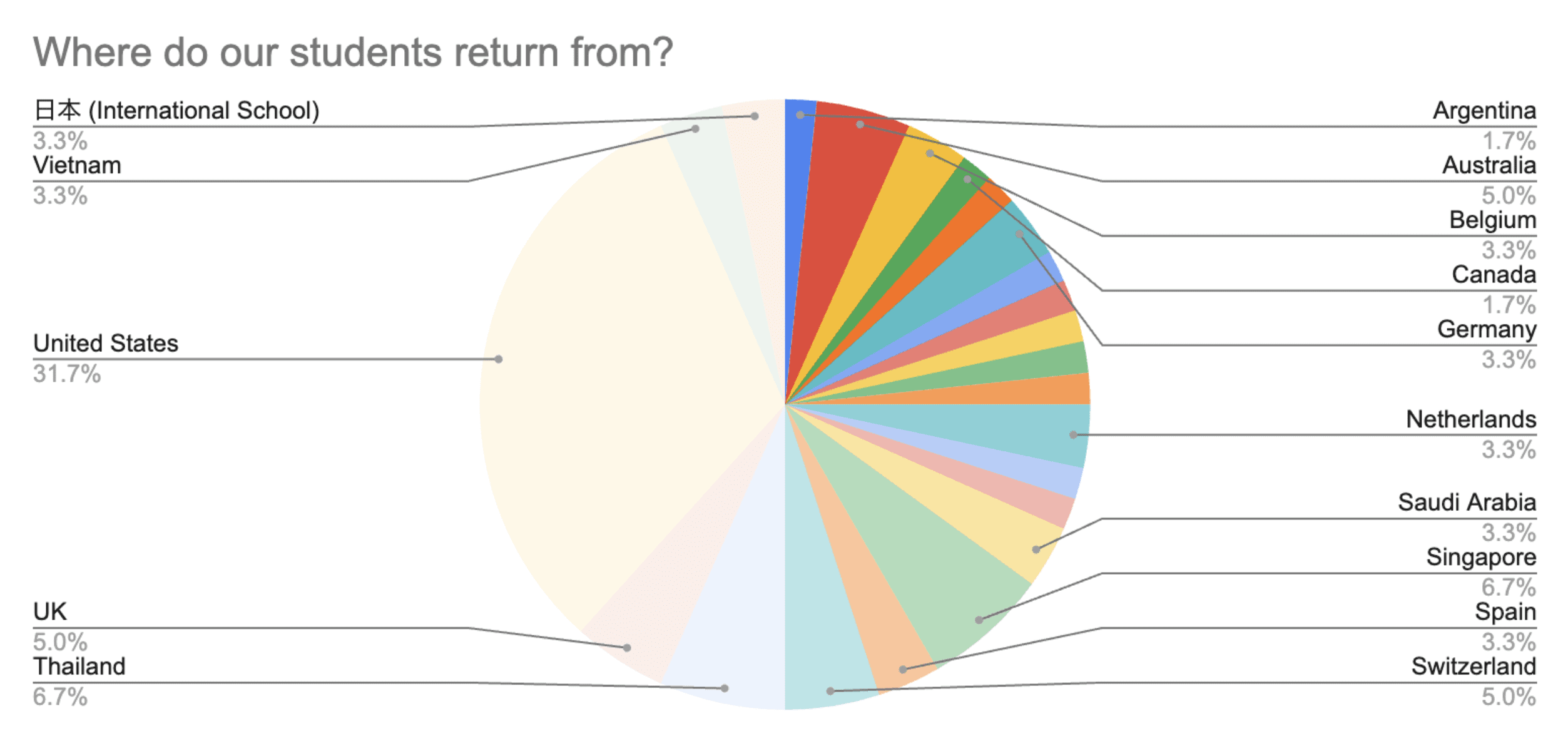

Forgetting English after coming back to Japan
Time and time again, parents come back to Japan and are surprised that their children are forgetting English so quickly. In only takes a quick walk around any neighborhood in the country to realize though that English is almost never spoken. Children can learn things quick. It is an amazing skill and talent that only children have. Yet we don't often consider the other side of the situation. Human brains are designed to forget irrelevant information. We remember useless things from time to time, but in general, we don't remember things we don't use. Children may learn things quickly, but if they are not using that information they will forget it.
Quick Facts:
- From our experience, students will lose their English ability within two years without using it regularly.
- Returning students face a high risk of abandoning English as they struggle to fit in with Japanese-speaking peers. Making friends in Japan is much more important to the average returnee.
- Students who don't have English-speaking friends start to dislike English, especially because school classes are either too easy or grammar-focused rather than conversational.
- Students may hide their English ability from their friends so they can fit in.
- The influence of Japanese-speaking peers is sometimes so strong that even the best efforts of parents might not prevent their children from losing their English proficiency.
- Without proper support, children who were once fluent in English might regress significantly, needing to relearn basics while their peers in classes advance.
How My Grandmother Lost Her Native Language
This happened to my grandmother in fact. She was born in France and spent the first five years of her life speaking exclusively French. At six years old, she moved to the United States of America. Despite her first language being French, upon moving to the United States, there was no reason for her to be brain to be operating in French. Nobody was speaking French there. French was her first language. She lost it entirely. By the time she was in her teen years, she couldn't remember it.
Challenges of Maintaining English for Returnee Students in Japan: The Importance of Language Output
For a student coming back to Japan, English was likely their second language, not his or her first language. The odds of that student naturally holding on to that English naturally are very slim. Furthermore, in my grandmother's case, the two languages, French and English even shared the same alphabet. We all know how different Kanji, Hiraragana and Katana are from the standard English alphabet. Thankfully, we live in a more modern generation. Yes, Youtube, Amazon, Netflix, etc do allow us to create chances for language input. Students can hear English in fun and entertaining ways. They can imagine in English, they can watch in English, they can even feel emotions from English. I highly these when used properly in controlled environments. Yet, where is the output? Can they interact with friends in English? Can they explain a situation? Who will correct their mistakes, encourages adventure, or guide them in this language when it is time to actually speak the language? When students come back to Japan though, this is a starting point.
Effective Strategies for Parents to Maintain Their Children's English Skills: The Power of Peer Influence
As parents we have options. If our English is good enough, a parent can commit to English entirely. Speak solely English, respond only to English questions, and if your family watches TV you can direct your children to as many English shows as possible. This does have a good effect, especially with younger children. Books are even better. Reading in English, both parent led and child led are fantastic solutions. Children, however, love their peers. Yes, a good mother or father will play hide and seek in English at the park. They may teach soccer, or enjoy dance, all in English. These are fantastic ways to build bonds between parents and children. At the end of the day however, kids need to see other kids doing what they are doing. Kids imitate their own peer group. Kids copy what the other kids are doing. So even the best intentioned parents may find their kids moving towards the Japanese being spoken by other kids their own age. With kids, almost nothing beats the power of their peers.
Finding Peers to Maintain Children's English Skills: The Key to Language Retention Through Social Interaction
So what is the solution? Well, one simple solution is to find peers for them! Joining classes and activities with other similar children will allow them to normalize English use. English will no longer be deemed irrelevant information. Nor will it be grouped as something that only grown-ups use. By finding peer activities, kids can build fun, meaningful relationships through English with their friends, teachers and coaches. They will also get a chance to practice and grow together, work and have fun together, compete and make memories together. Through this kind of interaction, kids will develop a greater motivation to keep up their English.
Engaging Returnee Students in English: Field Trips and Activities to Maintain Language Skills
What happens to students who don't want to study though? If they have learned English abroad and are not super keen to just study a language in a classroom, then more steps need to be taken. Events and experiences are how the kids often learned in the first place, so these types of things need to be maintained. The approach we have taken at Lexis is to have a large amount of field trip opportunities for these students. There are a wide variety of places that are "English friendly" around Kanto. We have found fantastic places such as Trampoland in Niiza, Team Lab Planets in Toyosu, Kidzania's English Wednesday program, and so many more. Additionally, by creating our own fun through experiences such as rock climbing, bowling, arts and crafts, ice skating, and more, we have been able to create an English only zone within Japan's borders, to better help kids get acclimated to the world around us.
Act Now to Prevent Your Child from Losing English Skills: The Importance of Continuous Language Support
So if your child is starting to lose his or her English ability, the time to act is now. If they are still fluent, please be careful. In my 15 years teaching, I have seen fluent elementary third graders turn into katakana using, Japanese-English speaking junior high school students because other things got in the way. When these students leave our school in 3rd grade and try to come back at 1st grade of junior high school, the language ability drop is so real. The likelihood is that they will have to repeat North American 3rd grade English (Eiken Pre 2) again when returning, while their peers that stayed with us at Lexis will be reading near the Eiken 1 level. Without proper output, without proper support, and without proper friends, all that native English skill developed outside of Japan, will be deemed irrelevant by their own brain. And no one wants to have to go through the process of learning another language two whole times.
Success Stories of Returnee Students at Lexis: From Childhood to University Excellence
Over 30 years we have taught thousands of returnee students. Here is the story of one boy who came to Lexis at 6 years old, a returnee from the USA with good speaking ability. He started with simple graded readers at Lexis, competing with his classmates about who could read the stories for first graders the fastest. Over time that competitive spirit made him a fantastic student here at Lexis. He kept up with all the homework and worked hard in class, often chatting about new technology, upcoming movie releases and school life drama. By the time high school rolled around, he was fixing other students iPhones, discussing our university prep level readings, and preparing for life as an adult. We are very proud of him, and so many other students like him. He describes Lexis in his own words here.

I spent three and a half years in the US during my early childhood, and after coming back to Japan, I attended Lexis for over ten years. Thanks to that, I kept improving my English and now I'm studying at the University of California, Berkeley. I tried out a few other schools, but Lexis stood out because of its great balance of reading, writing, and speaking lessons. The native teachers really knew how to tailor the classes to our levels. Plus, they made learning fun with seasonal events, movies, and music, so I looked forward to going every week, even as a kid. My solid foundation in English and my ability to express myself definitely come from my time at Lexis.
-Y.T.
To Returnee Students and Families Across Japan
If you are reading this and are in the Tokyo area, we welcome you to check out our school, Lexis, in Kichijoji. But for people across Japan it can often be hard. I used to teach returnees in Nagano prefecture in Ina City but usually, there was only one student at a time. There are online options, or occasionally local English schools can provide classes for you. However, many times they will have to be private lessons or have elementary school students studying with high school seniors. Ultimately the goal is to get kids around other kids their own age, using the language naturally in a lively environment. Lexis does offer online lessons, where students around Japan can join our in classroom students and follow along as well as present their information and share their thoughts. We have seen great success with students who take the homework seriously and have fun during the classes. Your local area may well have in person classes as well, and those are often great, especially when kids can make friends!


